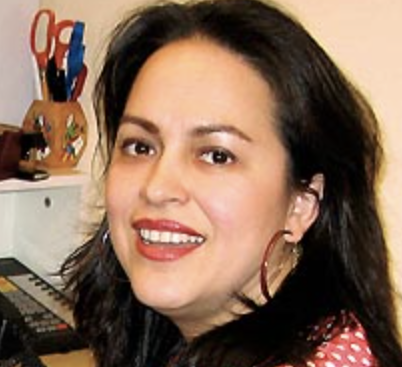(Photo by Yusef Najafi)
As part of our series highlighting our network members, meet an organization making a difference in the lives of survivors. In this conversation we speak with the Gender and Health Program Manager of La Clínica del Pueblo, Dilcia Molina.
What brought you to the work of supporting survivors and sexual violence?
The feminist commitment of doing something every day to eradicate (prevent and give attention to) gender-based violence. I like this work. I’m passionate about it and I’ve taken it as a ethi-political feminist responsibility.
What do you currently do in your position to support survivors of sexual violence?
I administrate a program of Integral Health for Latina Migrant Women within a community clinic, where we do gender-based violence prevention and attention work, as well as sexual violence, human trafficking and forced marriages. From within this space we provide assessment and triage services, psycho-educational groups, and aid working through the legal, medical and social services systems. We work with the health promoters model — they are clients who have passed through a formation and resilience process through healing and restorative justice from a public health perspective.
We also create awareness and consciousness through educational talks within the community about gender-based violence. We’ve created two curriculums: one about domestic violence and one about sexual violence, both of which are validated by the same community. We’ve created strategic alliances with other providers of culturally-specific services through coalitions and working groups.
How can we support loved ones who have been impacted by sexual violence?
Through solidarity, support, and sorority, in communities, creating spaces where they can receive culturally appropriate and language services, creating conscience in communities so that the prevention of this public health and human rights problem becomes a responsibility for all of us (healing and restorative justice, community mental health).
What advice would you give advocates working with Latinx survivors of sexual violence during the pandemic?
That it’s important to not forget about ourselves when we work with the human pain of our peers, and that it’s important to bring back the way in which we’ve healed ancestrally. It’s there, we just have to do the work of “rediscovering” what colonization “castrated” from us.
How do you practice well-being and self-care?
Paying attention to the body through corporal, mental and emotional conscience, regular visits to the doctor, exercise, healthy food, drinking a lot of water and sleeping well. Trying to create safe spaces to live and cohabit in the migration that segregates us due to being BIPOC communities.
Staying within loving and self-caring collectivity with other Latina women within the community (through an organization called Madre Tierra. I’ve retaken self-healing practices and collective healings like retreats, Madre Tierra rituals, flower therapy, yoga, zumba, meditation and intelligent movement, and of course, regular consults with our chamans in Latin América (Mexico, Guatemala and Chile).
